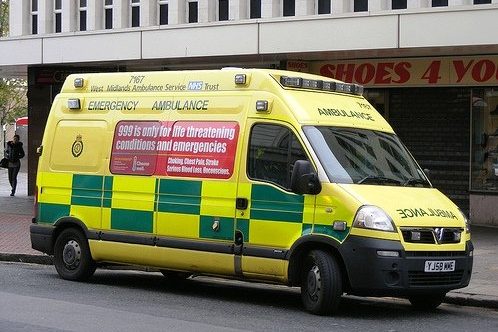West Midlands Ambulance Service could ‘fail’ entirely by August

West Midlands Ambulance Service has the potential to collapse entirely by mid-August said its nursing director.
Mark Docherty, the executive director of nursing and clinical commission at the WMAS told the Health Service Journal that the numbers of people waiting in ambulances for 24 hours before being admitted to hospital are rising.
He said: “Around August 17 is the day I think it will all fail.
“I’ve been asked how I can be so specific, but that date is when a third of our resource (will be) lost to delays, and that will mean we just can’t respond. Mathematically it will be a bit like a Titanic moment.
“It will be a mathematical (certainty) that this thing is sinking, and it will be pretty much beyond the tipping point by then.
“It would make me the happiest person in the world if everyone in the system proves to me that actually the ambulance service in the West Midlands isn’t going to fail on August 17, and I’ve got it completely wrong.”
He described the large number of medically fit patients occupying hospital beds as “criminal … when I’ve got teenagers dying on the street from things that are completely reversible”.
The service has raised its risk rating for handover delays to 25 in October, the highest in its history.
Docherty said: “The 25 reflects that patients are dying every day that shouldn’t be dying every day. Their deaths are entirely predictable, and of a scale that means we need to be taking this really seriously.”
“All of the issues that we’re building for the future are huge. And I don’t know why the CQC are not all over this, I don’t know why NHS England is not all over this.”
An NHS spokesman said: “The NHS has been working hard to reduce ambulance delays and £150 million of additional system funding has been allocated for ambulance service pressures in 2022-23.
“There is no doubt the NHS still faces pressures, and the latest figures are another reminder of the crucial importance of community and social care, in helping people in hospital leave when they are fit to do so, not just because it is better for them but because it helps free up precious NHS bed space.”









